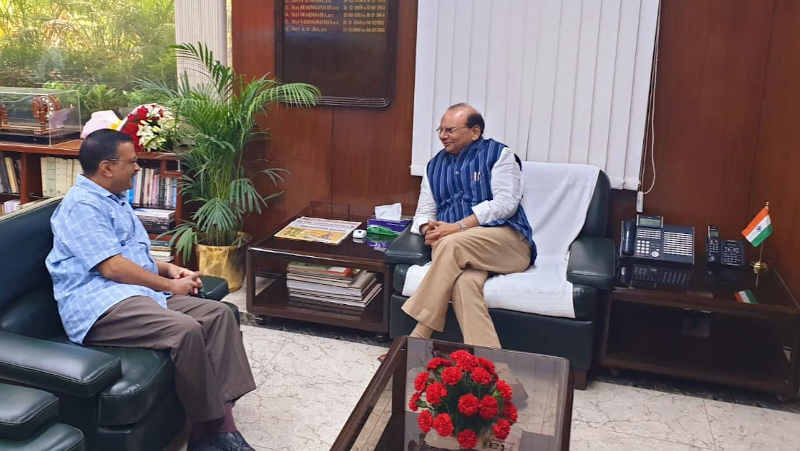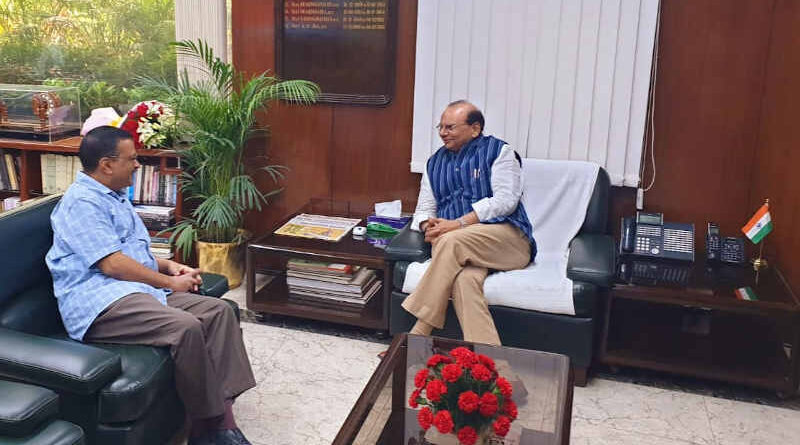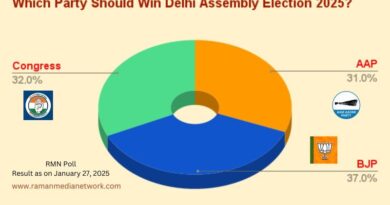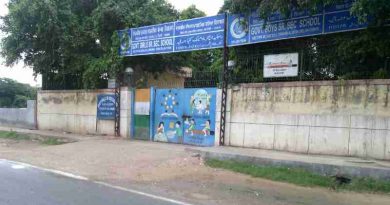Arvind Kejriwal Arrested by Enforcement Directorate in Liquor Scam Case

Arvind Kejriwal Arrested by Enforcement Directorate in Liquor Scam Case
In white-collar financial crimes only circumstantial evidence – as opposed to direct evidence – is required to start investigation or arrest an accused. There is ample evidence of Kejriwal’s involvement in the liquor scandal. It is not required to show the money trail at this stage.
By Rakesh Raman
A team of the Enforcement Directorate (ED) officials went to the residence of Delhi chief minister (CM) Arvind Kejriwal today (March 21) with a search warrant to arrest him in the liquor mafia case.
The ED action came after the Delhi High Court today dismissed Kekriwal’s petition that sought protection from arrest. He has been repeatedly defying the ED orders that called him for questioning in this case.
Previous case report of March 17 is given below.
The Enforcement Directorate (ED) has issued fresh summons to Delhi chief minister (CM) and Aam Aadmi Party (AAP) leader Arvind Kejriwal for questioning in the ongoing liquor scam case.
According to an NDTV report of today (March 17), the ED has called Kejriwal to appear in its office on March 21 to get his statement recorded under the Prevention of Money Laundering Act (PMLA). Kejriwal has already defied eight ED summonses that expected him to appear in the ED office.
Kejriwal had asked the ED – which investigates serious cases of financial crime – to hold a hearing with him through video conferencing because he fears that if he goes to the ED office he may be arrested. But the ED did not accept Kejriwal’s request.
Kejriwal also said that the ED can live-stream the online interaction with him, as he has nothing to hide. In the ongoing liquor mafia case, Kejriwal’s other colleagues – including Manish Sisodia and Sanjay Singh – are already in jail.
As there is ample evidence of Kejriwal’s involvement in the liquor scandal, he is expected to be arrested after interrogation. Therefore, fearing arrest, Kejriwal is not going to the ED office. In white-collar financial crime cases, only circumstantial evidence – as opposed to direct evidence – is required to start investigation or arrest an accused.
Earlier, in a letter sent to the ED on November 2 last year, Kejriwal said that the ED’s action is politically motivated and taken at the behest of the ruling party at the Centre (that is, the Modi government).
In October last year, while rejecting the bail application of Sisodia, the Supreme Court said there is a possible embezzlement of Rs. 338 crore in the liquor scam case. But the embezzled money has not yet been recovered.
[ Also Read: Justice Khanwilkar with Dubious Record to Head Anti-Corruption Outfit Lokpal ]
The possibility cannot be ruled out that the ill-gotten money in the liquor scandal or other scams in which AAP politicians are allegedly involved is hidden at Kejriwal’s fortress-like house which is guarded comprehensively.
So far, Kejriwal has not provided access to his house to the investigating agencies. But if Kejriwal is arrested and jailed like his other colleagues, it will be easier for ED or the Central Bureau of Investigation (CBI) to search his house to recover the corruption money.
Therefore, Kejriwal is making all sorts of excuses to defy the calls of the agencies which may arrest him immediately after his interrogation, as there is sufficient circumstantial and direct evidence of Kejriwal’s involvement in the liquor scandal and other financial crimes.
Along with Kejriwal, the other AAP politicians whose names appear in the investigating reports of CBI and the ED are Satyendar Jain, Manish Sisodia, Sanjay Singh, and Raghav Chadha.
Jain, Sisodia, and Sanjay Singh have already been jailed for their acts of corruption. It is expected that an AAP woman politician who loudly spreads lies in the so-called press conferences will soon be called for interrogation by the law-enforcement agencies.
Similarly, AAP politicians in Punjab led by CM Bhagwant Mann may be arrested and jailed as Sisodia’s dubious Delhi liquor policy is being implemented in Punjab also.
In November last year, a Punjab Congress leader Navjot Singh Sidhu filed a complaint to the Punjab Governor against the Punjab Government led by Bhagwant Mann.
In his complaint letter, Sidhu raised concerns over the precarious financial situation in Punjab, deteriorating law and order in the state, and lack of accountability in the Bhagwant Mann government.
[ Research Report: Decayed Digital Courts, Virtual Courts, e-Courts of India ]
The president of the Shiromani Akali Dal (SAD) Sukhbir Singh Badal has also urged the Punjab Governor to hold a probe into the alleged Rs. 500-crore liquor policy scam committed by the AAP government in the state.
It is learnt that the investigating agencies have already started questioning some of the Punjab Government functionaries and AAP leaders to know the extent of corruption in the Punjab liquor scandal.
While AAP politicians are apparently involved in multiple corruption scandals, it is expected that some of them named above will soon be behind bars.
In September last year, the CBI launched a preliminary inquiry into alleged irregularities in the construction and renovation of Kejriwal’s house on which the public money in excess of Rs. 45 crore has been squandered. It is a case of misappropriation of public money – which is a serious financial crime allegedly committed by Kejriwal.
Although Kejriwal has refused to obey the ED orders, he will not be able to escape for long as the legal noose is tightening around his neck.
By Rakesh Raman, who is a national award-winning journalist and social activist. He is the founder of the humanitarian organization RMN Foundation which is working in diverse areas to help the disadvantaged and distressed people in the society.
He has also been publishing The Integrity Bulletin news magazine since 2018 to cover local and international corruption issues to engage with different stakeholders who are trying to combat corruption in the world.
In order to inform the Indian citizens and the global community about the extent of corruption in India, he compiled and released in October 2023 a comprehensive research report “India Corruption Research Report 2023 (ICRR 2023)”. It is the second annual report on corruption in India while the first report ICRR 2022 was released in October 2022.
He runs a community-driven anti-corruption social service “Clean House” to help the residents of Delhi raise their voice against the growing corruption and injustice in housing societies where millions of people suffer because of rampant corruption and lawlessness.






